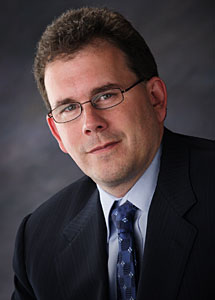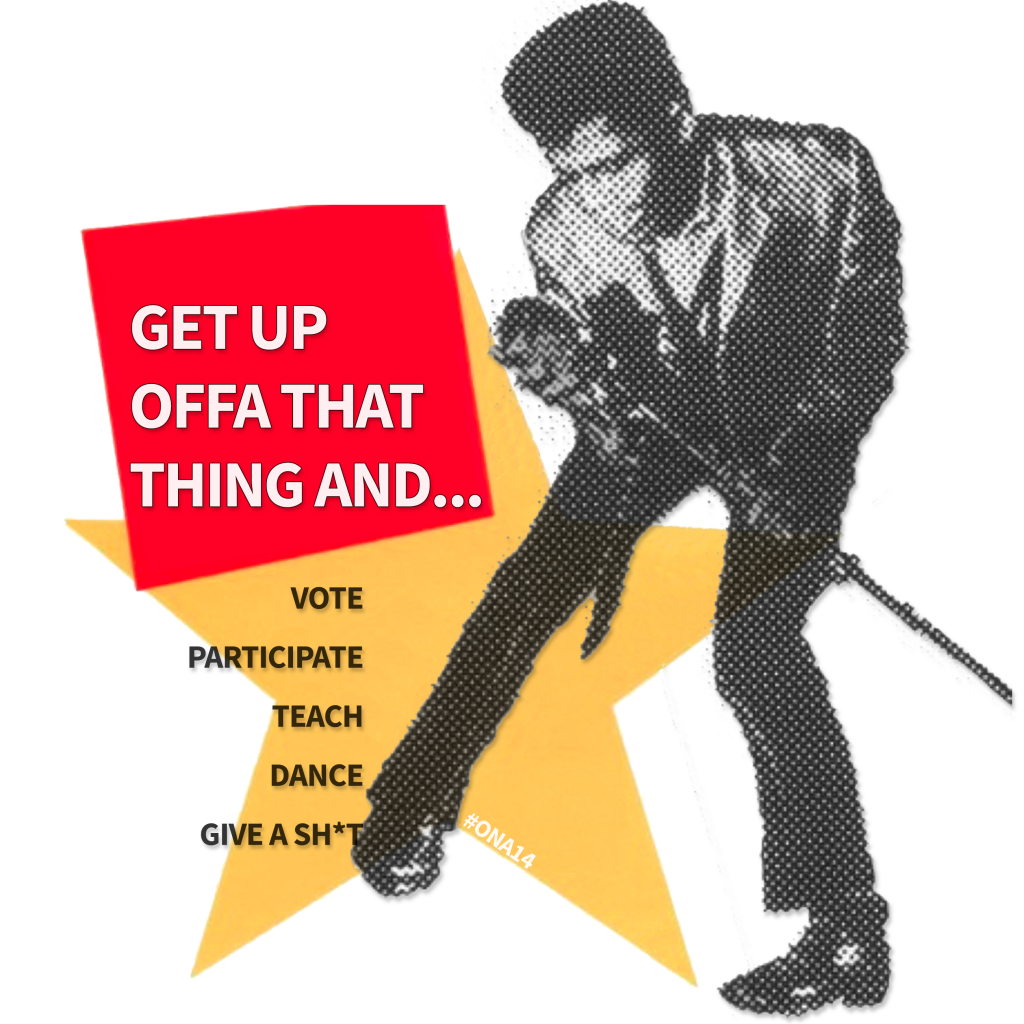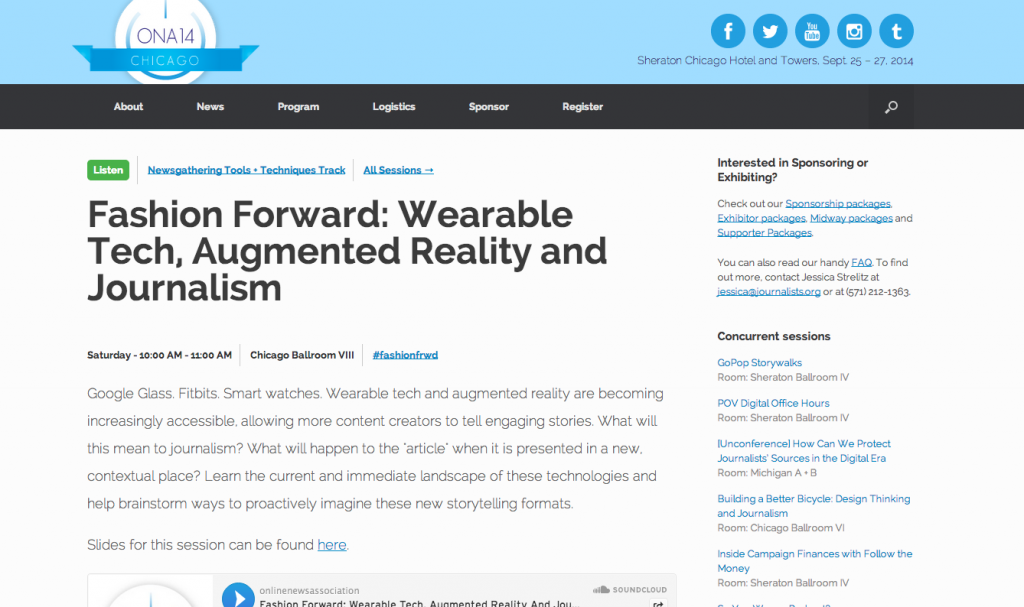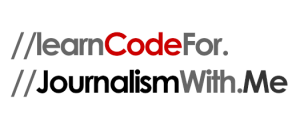NOTE: Originally ran on Online Journalism Review: http://www.ojr.org/ojr/people/webjournalist/201012/1920/
In the Web journalism world, it is hard to find someone who has been more of a pioneer than Jim Brady. From being a print sports reporter to becoming the executive editor at Washingtonpost.com to, most recently, launching (then leaving) TBD.com as the general manager, his career path is a proven track record committed to exploring Web journalism.
 For this week’s post, I had the privilege to “talk” with Brady a few days after he was the guest host on #wjchat, a weekly Web journalism chat held through Twitter. There were a few questions we had to cut because of time and hope to ask and explore them here. [NOTE: Play back the raw interview here]
For this week’s post, I had the privilege to “talk” with Brady a few days after he was the guest host on #wjchat, a weekly Web journalism chat held through Twitter. There were a few questions we had to cut because of time and hope to ask and explore them here. [NOTE: Play back the raw interview here]
Can you tell me a little about your background? Mainly, what was your first Web journalism job? How did you start? What was the environment like at the time? The culture?
The first web job I had was in 1995. I’d been a sportswriter at The Washington Post for a while, and had always been interested in new media, as they called it back then. I had a Prodigy account, an AOL account and even an eWorld account. Loved the idea of getting information whenever and however I wanted, but there was no practical application for a journalist to work online in the early 1990s. But then The Post launched a subsidiary called Digital Ink, and I joined in April 1995 to help it launch The Post’s first online adventure. We were a channel on a dial-up proprietary system called AT&T Interchange, which launched in late 1995. But we jumped on the proprietary bandwagon right as the web took off, so we quickly shuttered our presence on Interchange and I was sports editor [for] the team that launched Washingtonpost.com in June 1996.
The culture was totally freewheeling and wide open, and none of the web-print newsroom tensions existed at that point because, frankly, very few people at the paper gave a crap about what we were doing. We had an amazing creative bunch of folks there at that time, and many of them are still in digital media. It was a blast.
You have an amazing Web journalist, pioneering career. Your last adventure was with the D.C., local start up TBD. Can you describe the news org for folks. And, the question on people’s minds, the reason why you left it?
The concept of TBD was to produce a local news operation that wasn’t just on the web, but OF the web. What that meant, in my view, was avoiding the trap of producing traditional journalistic forms and just throwing them up on the web. To truly be OF the web, you have to produce journalism in ways that works in that medium. Sometimes, that still means producing a traditional all-text narrative. But, more than that, it means truly engaging with your audience, which we did via very aggressive conversation and newsgathering done via social media, via live chats and by building a network of more than 200 local blogs and linking to them and selling advertising for many of them. Being of the web means linking to other sites, so that you can become the first stop for readers interested in a topic and expose them to multiple voices in a region. It means not viewing mobile at something you have to do to check a box, but truly making an effort to produce a mobile site that thinks about that kind of information someone would want when disconnected from a laptop or desktop. It means not viewing the web as just another platform. I hate the term “platform agnostic.” I think it’s totally backwards. Some content works on multiple platforms; most of it does not. So we tried to blend these elements — all of which had been done separately in other places — into a unique local blend. And the audience response and traffic suggests TBD is on to something. And many of the calls I’ve gotten about consulting are asking for guidance on how we built TBD, which suggests others see it as a viable model as well.
As for why I left, despite the vision I just laid out, ownership of the company I worked for, Allbritton Communications, suggested we were out ahead of the audience and that we should scale back some of the aforementioned elements and focus on hiring more reporters and scaling back on the stuff I thought made us unique. We tried to find a middle ground, but in the end, there just wasn’t any. Both sides were pretty strong-willed in what they thought was right, and, as I told my friends, when you get into a significant dispute with the owner of a company, you’re always the one who ends up leaving. :-)
True. What do you make of the reactions about your departure? It seemed to be the talk of Web journalism, for better or worse.
Well, I think the fact so many people were so surprised suggests to me that they also thought we were doing something interesting, different and worth watching. Don’t get me wrong, there was a lot we were still struggling with, and the site launched with about half of what we originally envisioned. So we had a ways to go. But the reaction, the comments I’ve gotten and the desire for many others in media to get more details on what we were doing suggests there’s something there. And people should continue to keep an eye on TBD. Erik Wemple is a tremendous editor, Steve Chaggaris has done an amazing job leading the TV side of TBD and there’s a ton of talent there that will continue to do interesting things, assuming management doesn’t declaw the good ideas over the coming months.
You talked a little about it during #wjchat, but can you talk about what’s next for you. What are you looking for? You mentioned people want to talk to you about replicating TBD’s successes, is that the immediate future for you? What’s your dream gig, anyway?
Honestly, I don’t know at this point. Going to start consulting next week, and have a few gigs lined up, some longer term and some one-day jobs. But I want to be patient and wait for something that’s the perfect fit. I know what I don’t want to do, and that’s go back into a newsroom full-time and evangelize the web anymore. I freely admit to being tired of that particular part of working in legacy media. I have reached the point where, after 15 years, the burden of proof really needs to shift to those who have decided to keep their heads in the sand. I don’t think I should have to explain to journalists why they need to pay attention to the web; I think the companies they work for are owed an explanation by those folks as to why they’re not paying attention. To be fair, I think those folks are in the minority in newsrooms now, but many still holds positions of significant power, and getting the web and print or TV or radio to work together requires real effort from both sides, and that effort needs to start from the highest levels of a company. But if I can find a job where that’s not a key component, that’s great. But what’s most important to me in the next job is to replicate the startup feel that the folks at TBD had for a while. The ability to launch something new, with a talented staff you get to hire and supportive management, is something I want to do before I get out of the business. I felt like we were close to that at TBD, but didn’t quite get the complete support of management there, though Robert [Allbritton] deserves a lot of credit for having the guts to support the idea.
Why do you think that is… that makes leadership/management still not understand or value the Web and its opportunities/possibilities? And what advice, if any, do you have to those that are still in newsrooms fighting this good fight?
Well, let’s be honest: A lot of it has to do with revenue. The legacy businesses still drive a significant majority of the revenue. And no one is suggesting — as I often see ill-informed types write on Twitter — that most of us digital types want companies to shut down those businesses. We don’t, and they can’t. But you see places where 80 percent of the revenue is from a legacy business, and 90 percent of mindshare is going toward the legacy business. To me, to have an effective long view, companies should be spending half their mindshare trying to build a business model in the medium that is clearly going to the future of most of these companies. That’s the frustration. I think people get that the web is a huge part of the future, but for whatever reason, it’s still hard to get those folks to actually focus on it.
As for those still fighting the good fight, my advice is the same as its always been: To be successful getting newsrooms engaged in fighting on the web, you have to show them what they get out of it, other than an occasional pat on the back. Find a few pioneers in your newsroom who are willing to try anything, then make sure the rest of the newsroom knows about those successes, which inevitably appeals to the competitive nature of journalists. And do everything you can to make sure successes are celebrated at the highest levels of the company. One of my criticisms of the management at Allbritton is that they never got TBD and Channel 7 together to share an overall vision of why the entire project had been greenlit. You need air cover from management in cases where you’re trying something new. The mangers and staffers lower down in the org have to make the day-to-day work, but without public top-level management support, it makes the battles in the trenches much harder.
Can you briefly talk about how you got started with TBD. Did someone approach you? Did you pitch the idea to someone?
I met with Robert Allbritton when I was doing some consulting for Politico, and he asked me what I was interested in doing next, and I mentioned local as something — based on my experience at The Post – [that] seemed like a real opportunity. He was interested, so I went off for a few months and pulled together a business plan, a competitive analysis and a strategy for the site. He thought about it for a while, and decided to go ahead and do it, to which I owe him greatly.
Because of time, we had to cut out some audience questions from #wjchat … I’d like to ask you a couple of them here. The first one is from Saleem Khan (@saleemkhan): If you were launching a news startup today [@TBD-scale and bootstrapped] what would you do differently?
First one is obviously [to] pick a niche. (Although we did that at TBD as well, though it was a big niche called “local”). As for what I’d do differently, I think the first part is to have a sales force with deep digital backgrounds. That was the original plan at TBD, and we hired some talented people with digital chops. But the company changed the structure before launch, and all those folks were put under the TV sales structure, and all soon left. I think that was a mistake. The TV sales forces did a pretty good job of selling the site once it launched, but we struggled to get traction in any sales area outside straight CPM-based display, and I don’t think that’s enough to support the site long term. That’s why we had the blog network and wanted to focus on selling geo-targeted ads and maybe even get into providing some self-serve tools for smaller local advertisers. But we didn’t get anywhere with those, and do think some other revenue streams will be needed. So my biggest piece of advice is to hire people who know the medium in which you’re living.
The next question comes from Sarah Fidelibus (@verbalcupcake): What startups have particularly impressed you? What have they’ve gotten “right”? Who has a biz model that you think is working well? Examples? What are they doing right, and how so? (These were two separate tweets from Sarah.)
I think there are different types of startups that have impressed me, and in different niches. On the news side, I do like what many of the non-profits are doing. I think ProPublica does phenomenal work on the investigative and data sides, and it’s been interesting to track local startups like MinnPost, Texas Tribune, Voice of San Diego and Bay Citizen. I also find myself fascinated by location-based services like Twitter and Gowalla. I am not quite sure how they tie into local journalism yet, but there’s an answer there, which [is] why I check in just about everywhere on FourSquare. I think that’s the only way to really learn about these things. I am also really interested in what SB Nation is doing here in DC. They’ve done a great job of aggregating strong voices throughout the world of sports, telling stories in a more fun and more open way than most sports sites, and they seemed to have managed to tap into the community nature of sports that even an amazing site like ESPN can’t quite go at as hard, because they have so much stuff from their various platforms to promote.
As for the business models, I think we’d all agree there [isn’t] a massive list of new news sites that are making a ton of profit at this point. Honestly, that’s part of the reason the TBD idea seemed so interesting for me to pursue: I think, even if we figure out how we best evolve journalistically to the web, it won’t much matter if we don’t get the business side figured out. And as someone pointed out during the wjchat the other night, I think the business side is farther behind in figuring out the web than the newsrooms are. But neither side is where it needs to be yet.
Agreed. The last crowdsoured question comes from Andy Boyle (@andymboyle): I heard you very much dislike the “web producer” title of people. Or so you said at Nebraska. Tell us more?
Yeah, not a big fan of that title, but only because I don’t think a lot of people in legacy newsrooms know what the hell it means. As a result, I think sometimes web producers are treated like technical people and not the journalists that they almost always are. So you hear stories where a web producer is handed a headline and blurb to post by a newspaper staffer because that person doesn’t realize the producer actually can do that task as well. There are a lot of titles on web teams that don’t always explain what someone actually does. Sad that issue still exists, but I do expect that, over time, titles will flatten out and everyone will understand what everyone else does. But, sadly, we don’t seem to be there yet. I think, what it really comes down to is that, as long as people understand your skillset and what you do, you can give them the title of the “king of the universe” if you want. Understanding who someone is ends up being far more important than what they’re called.
Titles certainly have been somewhat of a joke in the Web journalism world. I was feeling good about my “Director” title until I met a “Senior Director.” But putting those labels aside, how do you describe your skills… how do you describe what you do in journalism? Meaning, I’m a journalist… more specifically a Web journalist. But, I’ve been describing what I do as being more like a Mad Scientist for journalism. A guy that bridges tech and journalism for the advancement of storytelling/journalism. How would you/do you describe what you do?
I am a journalist who speaks multiple “languages,” if you will. I understand the differences between platforms. I am a journalist who advocates assessing a story first, and then determining the best tools to tell it effectively, as opposed to going into a story knowing it’ll be text or video or photos, etc. But it’s a good question. I’ve never really boiled it down to a sentence. I guess I’d call myself a journalist who has found his true home in digital, but still rents a house in other media.
Ha! Well said, sir. I have so many more questions to ask… but we are running out of time. Let me ask you one final question that I’ve been asking journos for the last few months. In your career, you’ve had your ups and your downs… not to sound to negative, but as Web journos we get frustrated… but any way you look at it, we’re still here trying. Why? Why do you stay in this business? What keeps you going and fighting and evolving? Why are you a journalist?
Well, as to the question of why, I saw “All the President’s Men” in the theater with my parents when I was seven, and am probably still one of the only kids who always thought it was a cooler movie than “Star Wars.” So I fell in love with journalism at that point. But in the early years of my career, I started getting really interested in technology as well, and damn near almost quit the business in 1992 to go get a computer science degree. So the last 15 years of my life have been wonderful, as I’ve gotten the chance to mix two real passions. As for why it’s important to keep pushing, it’s trite and simple: The journalism business — and I use the word business intentionally — is in trouble, and journalism remains a crucial piece of our democracy and I fear for its future. Even though the money isn’t where it needs to be on the digital side, I find it thrilling to be aboard the ship that [is] going to eventually be the rescue ship. So that, to me, is where I find the excitement and desire to charge on. Having said that, I’m at a point now where I’d rather go off and build a whole new digital ship and leave the evangelizing to others. I’m starting to believe the future of journalism may well be a whole host of shiny brand-new ships as opposed to the repainted ships of old. I expect the major media companies of today to be around going forward, but they’re going to have to survive against a whole host of new competitors.
Well, I never thought I’d see a sentence that [would compare] both “All the President’s Men” and “Star Wars” … perhaps one can argue that Woodward and Bernstein were the Luke and Han for newspapers in their day.
I always said that the character of Darth Vader had nothing on Ben Bradlee in that movie. He was a much cooler cat, if you ask me.
Ha! Well, thank you Jim for taking the time. I really appreciate it.
My pleasure. Thanks for the great questions, and for hosting wjchat the other night. Fun times.
I’m glad you enjoyed it!





 For this week’s post, I had the privilege to “talk” with Brady a few days after he was the guest host on
For this week’s post, I had the privilege to “talk” with Brady a few days after he was the guest host on